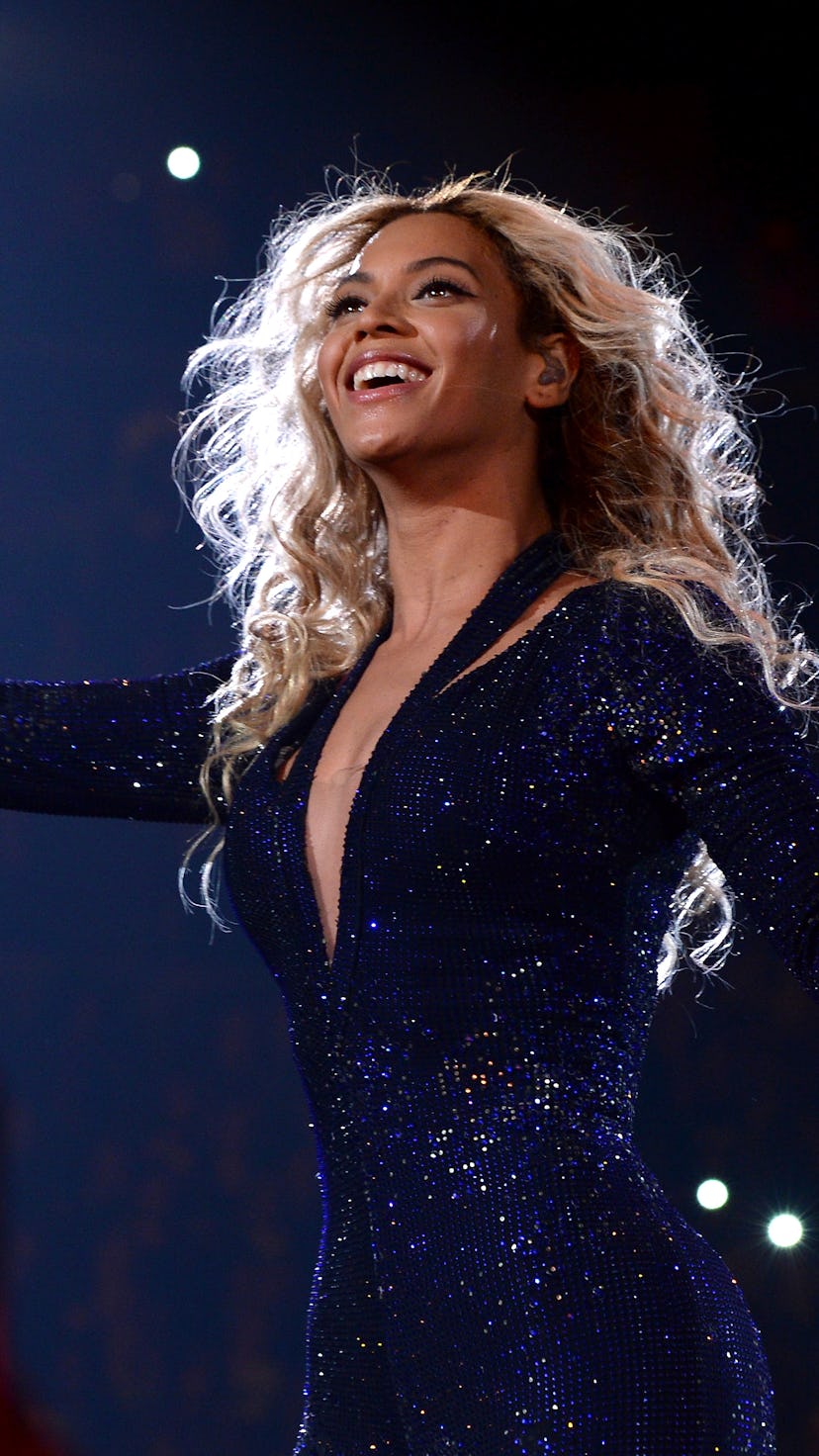Like the rest of us geniuses, Beyoncé can't sleep. Why are creatives cursed with insomnia?

With a record-breaking 28 Grammys, four Golden Globe nominations, a successful athleisure line, and all the other accolades that come with being an icon under her belt, is there anything Beyoncé can’t do? Apparently, there is one thing, according to her recent interview with Harper’s Bazaar: Sleep. “I’ve personally struggled with insomnia from touring for more than half of my life,” she told the magazine.
Some might argue that Queen Bey’s sleeplessness only cements her creative genius status. Indeed, a number of artists across disciplines — Rih, Diddy, Roxane Gay, Lady Gaga, and Van Gogh, to name a few — have also reportedly had trouble getting shuteye. Is there a link between creativity and shitty sleep?
To investigate whether this connection is based more in science or pop culture lore, I spoke with Daniel Barone, associate medical director of the Weill Cornell Center for Sleep Medicine and author of Let’s Talk About Sleep: A Guide to Understanding and Improving Your Slumber. According to Barone, a correlation seems to exist, but scientists are still teasing apart the details. For now, he speculates that creative types often struggle to sleep at night because of a combination of the way their minds operate and the times of day that they tend to work on their craft.
Barone says a major cause of poor sleep — for creative geniuses and mere mortals alike — is a mind that just won’t quit. “It would make sense that somebody who’s very creative and whose mind is constantly active would have trouble kind of going into that rested state when it’s time for bed,” he says.
All of this raises something of a chicken-and-egg question. While a creative mind may very well mess with your sleep, I can’t help but wonder if poor sleep can also make you more creative, perhaps by lowering your inhibitions?
“I don’t know if anybody knows the answer to that,” Barone says. But he does point out that, at least anecdotally, creative types tend to have schedules that allow them to work late at night and awaken later in the morning. Think of musicians and other performers, or someone who toils over a passion project after their day job. “That flexibility with what they do, I think also perpetuates this problem,” Barone says.
And when Bey’s on tour, she performs not only at night, but across time zones. But before delving into how this might also play a role in her insomnia, let’s back up and look at the biology of how we fall asleep.
Our brains let us know it’s time to doze off by secreting the hormone melatonin, which sets off a cascade of molecular signals that lull us to sleep, Barone says. Usually, this coincides with the sun, he explains, with melatonin levels rising at nighttime and falling in the daytime.
When we jet to another time zone, though, that melatonin production doesn’t automatically fall in step with the sun’s movements in our new location — as anyone who’s experienced jetlag can attest, it may take a few days to catch up. For Bey, “that constant switching between time zones never gives her body a chance to acclimate to that new time, so it’s almost like she’s experiencing jetlag continuously,” Barone says.
Beyoncé might still have a hard time winding down even when she’s not touring because she’s probably used to being “on” at night, Barone says, versus a normie who needs to be “on” from 9-to-5. “Her peak is much, much later at night,” Barone says. “Turning back to a normal schedule would be very, very difficult.”
As Barone alluded to, researchers do acknowledge a relationship between creativity and sleep, but they seem to have yet to reach consensus as to the nature of it — which makes sense, since the concept of creativity is so hazy, he says, and therefore hard to quantify. In one study, highly creative children reported more sleep disturbances than their not-so-creative counterparts, but other studies have shown sleep to enhance creative problem-solving.
Barone believes that over time, chronically bad sleep could hurt creativity. Again, because creativity is so difficult to study, the data on the association between sleep and creativity isn’t as robust as the findings on how long-term, low-quality sleep messes with, say, memory or reaction time. Based on these correlations, though, Barone says it stands to reason that poor sleep would also impair creativity in the long run. The conclusion pushes against the “tortured artist” trope, which many believe to be dangerous in how it glamorizes mental health problems and obscures punishing working conditions.
If you’re an artistic soul who finds yourself tossing and turning at night, rest assured that you’re not doomed to a life of sleeplessness. “I think the key thing to remember is that you can’t do whatever you’re doing, and then go right to sleep,” Barone says. In other words, if you climb into bed immediately after grappling with a stanza in your latest poem, expect it to continue swirling through your mind for while.
Instead, set a timer for about a half hour to an hour before you go to bed as a signal to stop what you’re doing, Barone suggests. Meditate, listen to soft music — anything that draws your mind away from your creative work and eases it into a relaxed state. Toiling over one's art non-stop can take a toll, even on Queen Bey herself.